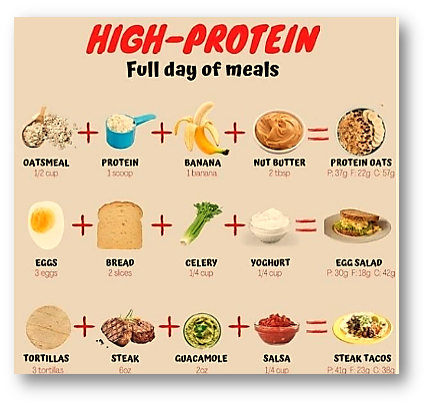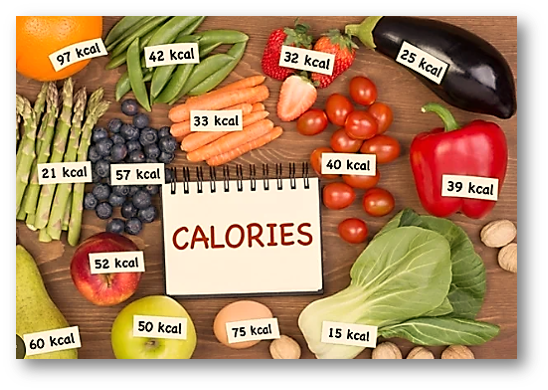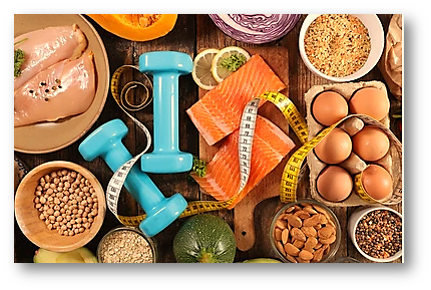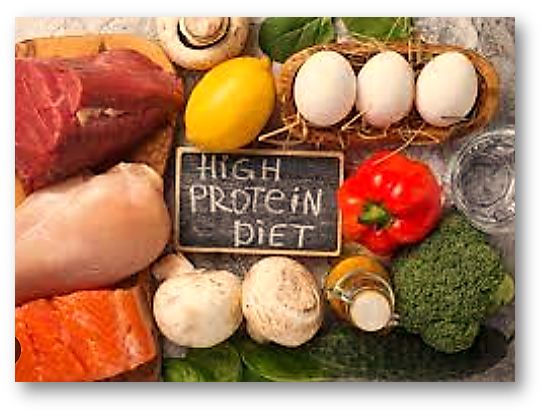WHAT IS A PROTEIN DIET??
A protein diet is a diet that emphasizes high levels of protein in the diet. Protein is an essential macronutrient that helps to build and repair tissues, produce enzymes, and perform other functions in the body. It is found in a variety of foods, including meat, poultry, seafood, eggs, beans, nuts, and dairy products. Some people choose to follow a protein diet to help them lose weight, build muscle, or improve their athletic performance. It is important to note that while a diet high in protein can be beneficial for some people, it is not suitable for everyone and can have potential drawbacks if not followed properly. It is always a good idea to speak with a healthcare professional before making any significant changes to your diet.
FOOD OPTIONS WHEN YOU ARE ON PROTEINS!!

There are many different food options that can be included in a protein-rich diet. Some examples include:
Meat:
Beef, chicken, pork, lamb, and other types of meat are good sources of protein.
Poultry:
Chicken and turkey are good sources of protein.
Fish and seafood:
Fish such as salmon, tuna, and halibut, as well as shellfish such as shrimp, crabs, and lobster, are good sources of protein.
Eggs:
Eggs are a good source of protein and can be eaten as part of a protein-rich diet.
Beans and legumes:
Beans, lentils, chickpeas, and other legumes are good sources of protein.
Nuts and seeds:
Nuts and seeds, such as almonds, cashews, and pumpkin seeds, are good sources of protein.
Dairy products:
Milk, cheese, and yogurt are good sources of protein.
It is important to remember that it is not necessary to rely solely on these types of foods to get protein in your diet. Many foods, including vegetables, grains, and even some fruit, contain some protein. It is a good idea to have a varied diet that includes a variety of protein sources.
HEALTH EFFECTS OF PROTEIN DIET!!
A diet high in protein can have some potential health benefits, such as helping to build and repair tissues, produce enzymes, and perform other functions in the body. It may also help to increase muscle mass and strength, improve athletic performance, and reduce muscle loss during weight loss.
However, it is important to note that a diet high in protein is not suitable for everyone and can have potential drawbacks if not followed properly. For example, a diet high in protein from animal sources may be high in saturated fat, which can increase the risk of heart disease and other health problems. In addition, a diet high in protein may put extra strain on the kidneys and may not be suitable for people with kidney problems.
It is always a good idea to speak with a healthcare professional before making any significant changes to your diet, including starting a protein diet. They can help you to determine the right balance of protein and other nutrients for your needs and can help to ensure that you are following a healthy and balanced diet.
RISK OF PROLONGED PROTEIN INTAKE!!
It is generally not recommended to follow a high-protein diet for an extended period of time. While a diet high in protein may have some potential short-term benefits, there are potential risks to consider when following a high-protein diet long-term.
One potential risk is that a high-protein diet may be high in saturated fat, which can increase the risk of heart disease and other health problems. In addition, a high-protein diet may put extra strain on the kidneys and may not be suitable for people with kidney problems.
Another potential risk of a high-protein diet is that it may not provide enough other important nutrients, such as carbohydrates and fiber. These nutrients are important for overall health and can help to prevent constipation and other digestive problems.
It is important to remember that a balanced diet that includes a variety of nutrients is generally the best approach for long-term health. It is always a good idea to speak with a healthcare professional before making any significant changes to your diet, including starting a high-protein diet. They can help you to determine the right balance of protein and other nutrients for your needs and can help to ensure that you are following a healthy and balanced diet.
CAN YOU LOSE WEIGHT BY EATING PROTEIN ONLY??
It is possible to lose weight while following a high-protein diet, but it is generally not recommended to eat protein only. A diet that consists of only one type of nutrient is not balanced and may not provide all of the nutrients that your body needs to function properly.
In order to lose weight, it is important to create an energy deficit by burning more calories than you consume. A high-protein diet may help to promote weight loss by increasing feelings of fullness and reducing appetite, which may make it easier to stick to a calorie-controlled diet.
However, it is important to remember that a balanced diet that includes a variety of nutrients is generally the best approach for long-term weight loss and overall health. It is always a good idea to speak with a healthcare professional before making any significant changes to your diet, including starting a high-protein diet. They can help you to determine the right balance of protein and other nutrients for your needs and can help to ensure that you are following a healthy and balanced diet.
CATEGORIES OF PROTEIN DIET!!

There are several different categories of protein diets that you may come across. These include:
High-protein diets:
These diets emphasize a high intake of protein and may include foods such as meat, poultry, fish, eggs, beans, nuts, and dairy products. Some high-protein diets may also restrict the intake of other nutrients, such as carbohydrates.
Low-carbohydrate, high-protein:
These diets emphasize a high intake of protein and a low intake of carbohydrates. They may include foods such as meat, poultry, fish, eggs, cheese, and non-starchy vegetables.
Vegetarian protein diets:
These diets are based on plant-based protein sources, such as beans, legumes, nuts, and seeds. They may also include dairy products and eggs, depending on the type of vegetarian diet.
Vegan protein diets:
These diets are based on plant-based protein sources and exclude all animal-derived products, including meat, poultry, fish, eggs, and dairy.
It is important to note that these are just a few examples of the different types of protein diets that are available. It is always a good idea to speak with a healthcare professional before starting any type of protein diet to ensure that it is safe and appropriate for your individual needs and health goals.
MYTHS ABOUT PROTEIN DIET!!
There are several myths about protein diets that may lead people to believe that they are a quick and easy solution for weight loss or improved athletic performance. Some of these myths include:
A high-protein is the best way to lose weight:
While a high-protein diet may help to promote weight loss by increasing feelings of fullness and reducing appetite, it is not necessarily the best way to lose weight. In order to lose weight, it is important to create an energy deficit by burning more calories than you consume. A balanced diet that includes a variety of nutrients is generally the best approach for long-term weight loss and overall health.
Protein is the only nutrient that matters for building muscle:
Protein is important for building and repairing muscle, but it is not the only nutrient that matters. Carbohydrates and fats also play a role in muscle growth and repair, and a balanced diet that includes all three macronutrients is generally the best approach for optimal athletic performance.
A high-protein diet is the best way to improve athletic performance:
While protein is important for building and repairing muscle, it is not the only nutrient that matters for athletic performance. A balanced diet that includes a variety of nutrients, including carbohydrates, fats, and electrolytes, is generally the best approach for optimal athletic performance.
It is always a good idea to speak with a healthcare professional before starting any type of protein diet to ensure that it is safe and appropriate for your individual needs and health goals.
GYM WORKOUTS AND PROTEIN!!

There is a strong correlation between gym workouts and protein. Protein is an essential macronutrient that helps to repair and rebuild muscle tissue after exercise. When you work out, you create tiny tears in your muscle fibers. This is a normal part of the muscle-building process, as your body responds to the stress of exercise by adapting and becoming stronger. However, in order to repair and rebuild muscle tissue, your body needs an adequate supply of protein.
There are many sources of protein that you can incorporate into your diet to support your gym workouts. These include animal proteins like meat, poultry, and fish, as well as plant-based sources such as beans, lentils, and tofu. It is important to choose a variety of protein sources to ensure that you are getting all of the essential amino acids that your body needs.
In general, it is recommended that adults consume 0.8 grams of protein per kilogram of body weight per day. However, if you are engaging in regular strength training or other forms of exercise, you may need to consume more protein to support muscle repair and growth. Many fitness experts recommend that active individuals aim for 1.2-1.7 grams of protein per kilogram of body weight per day.
Remember to also stay hydrated and get enough carbohydrates and healthy fats to support your workouts and overall health.
REFERENCES:
https://nutritionandmetabolism.biomedcentral.com/articles/10.1186/1743-7075-11-53


Pingback: DARK CIRCLE, DON'T LET THEM DEFINE YOU!! - Life Biologs